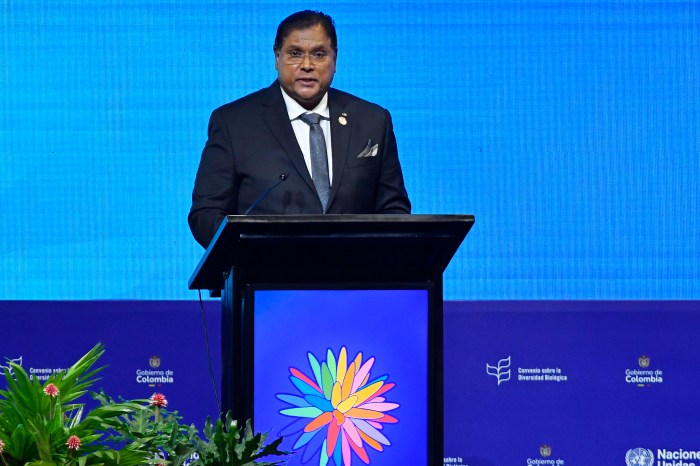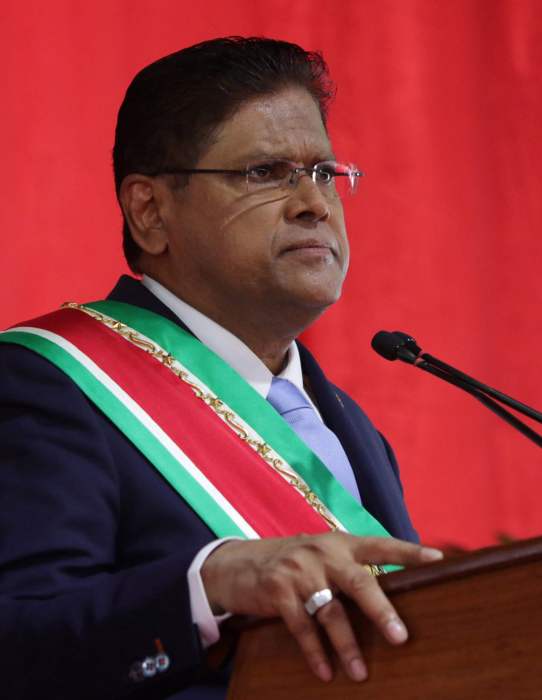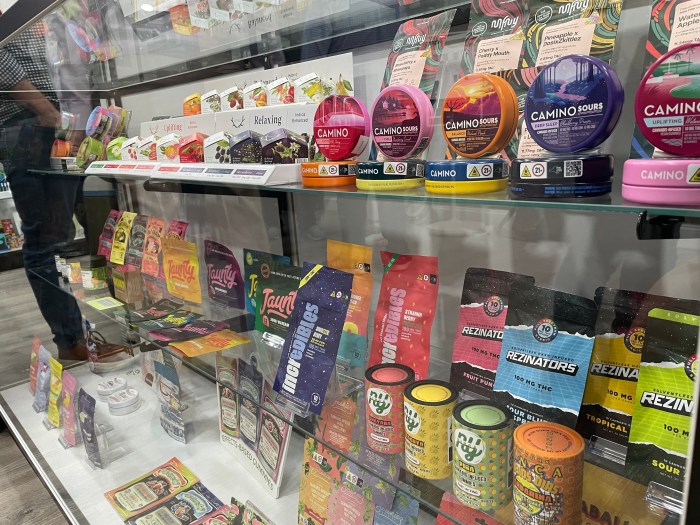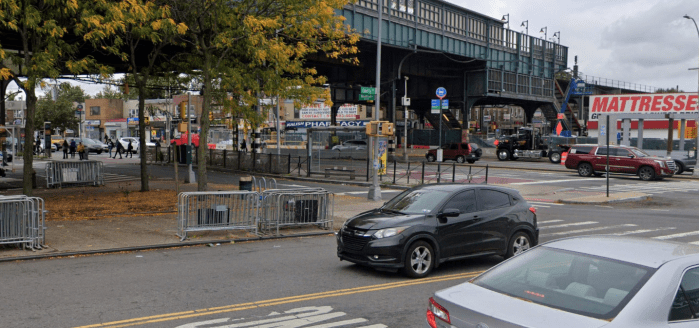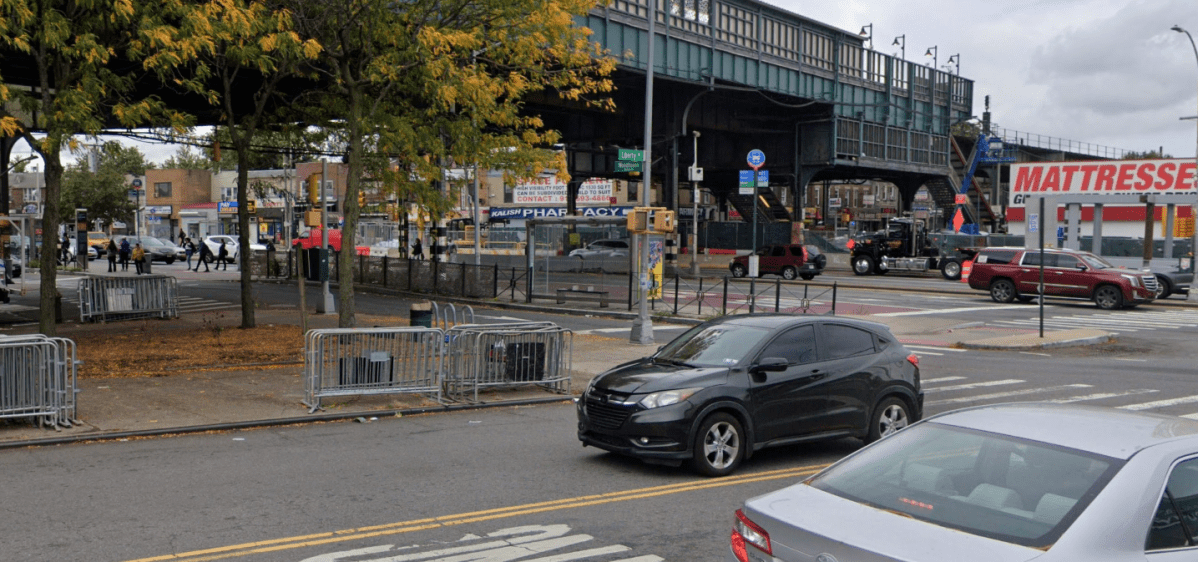Street protests and labor union unrest have in recent weeks seriously hit two South American countries with very close relations to the Caribbean Community with both having much to do with declining living conditions, crime and feelings that governments are not listening.
In Suriname, the second to last country to join the group of nations back in 1995, a hike in fuel prices was all it took to bring more than 10,000 teachers, merchants, government and other workers to the streets as they called for a reversal of the increase, the resignation of President Desi Bouterse and moves by cabinet to improve the quality of life.
For many of the thousands who left their posts to register disgust with the situation in Suriname, a country of about 500,000 people neighboring Guyana, ‘enough was enough’ after three years at least of stringent austerity measures caused by weak prices for gold, oil and the virtual decimation of the bauxite export industry.
State revenues have declined by 70 percent compared to 2015 and there has not only been a dramatic drop in central bank foreign exchange reserves but authorities have been forced to dip in the rainy day fund to keep the economy going.
Additionally, the IMF has approved a $478M loan package to help with basic imports but has in turned demanded the lifting of subsidies on a raft of services that Surinamese had enjoyed on the cheap for decades. These include electricity rates. This for many was another sore point for protesters.
As if the daily increase in basics are not enough, the Surinamese dollar (SRD) has declined by at least 25 percent in value in the last year, pushing up prices and eating away at spending power. Talks are ongoing with the Islamic Development Bank for a $1B cash injection also to ensure basics are on the table and supplies on shelves.
As the administration monitors the situation on the streets, police were forced to team up with soldiers to deal with crime in western coastal areas and in the capital-home invasions, street robberies and other crimes.
Another adjustment to fuel prices to match increases on the world market was scheduled for Wednesday but the ministry of commerce, industry and tourism called in the press to sign documents cancelling a planned price hikes that would certainly have further irked protesters.
Union Leader Robby Berenstein said protesters had no intention of pushing the administration out of office but to force changes of fiscal and monetary policies.
“The government should not underestimate the message we have sent,” he said, warning of continued unrest if economic hardships continue.
Meanwhile, across the southeastern border in French Guiana where up to the 60 percent of the population is considered as Afro descended, thousands of demonstrators have also taken to the streets, railing against living conditions and disparities between whites and other groups, an increase in violent crime and burning issues such as no electricity and potable water for a number of communities.
The angry protesters, stirred on by the French colony’s small but sometimes militant independence movement, had demanded $2B from France to correct the social and economic ills but France said it will only disburse $1B.
French Guiana is an Overseas Department of France as is Martinique, Guadeloupe and St. Martin but protesters say that conditions are by far the worse there compared to the others.
Six years ago, Tullow Oil of the UK had found a large quantity of oil and gas offshore but most locals believe nothing will trickle down to them. Presidential elections in mainland France are scheduled for April 23.



